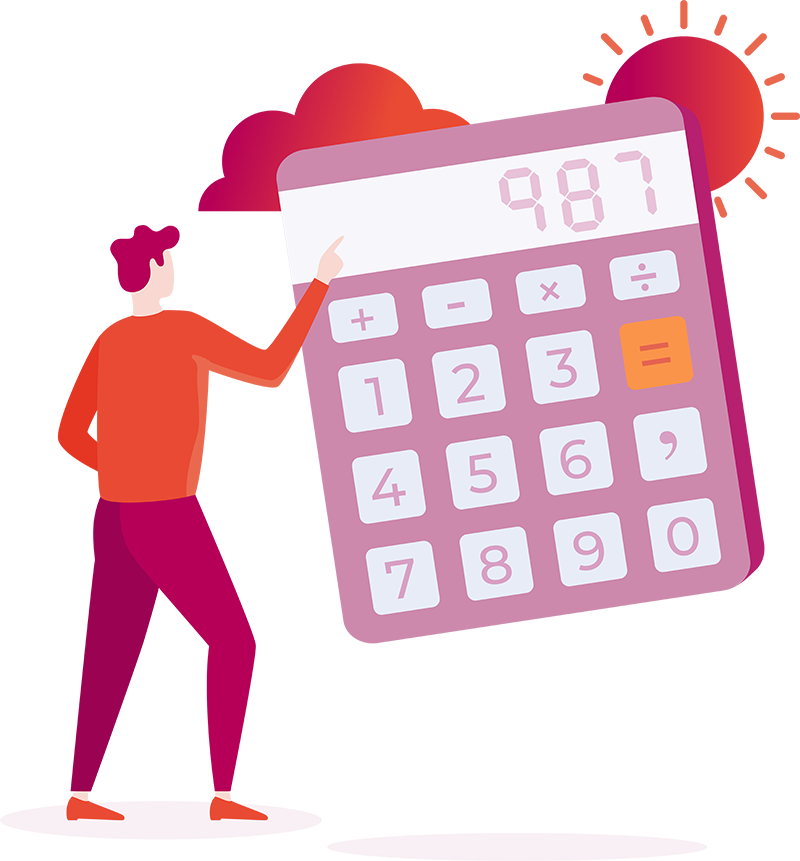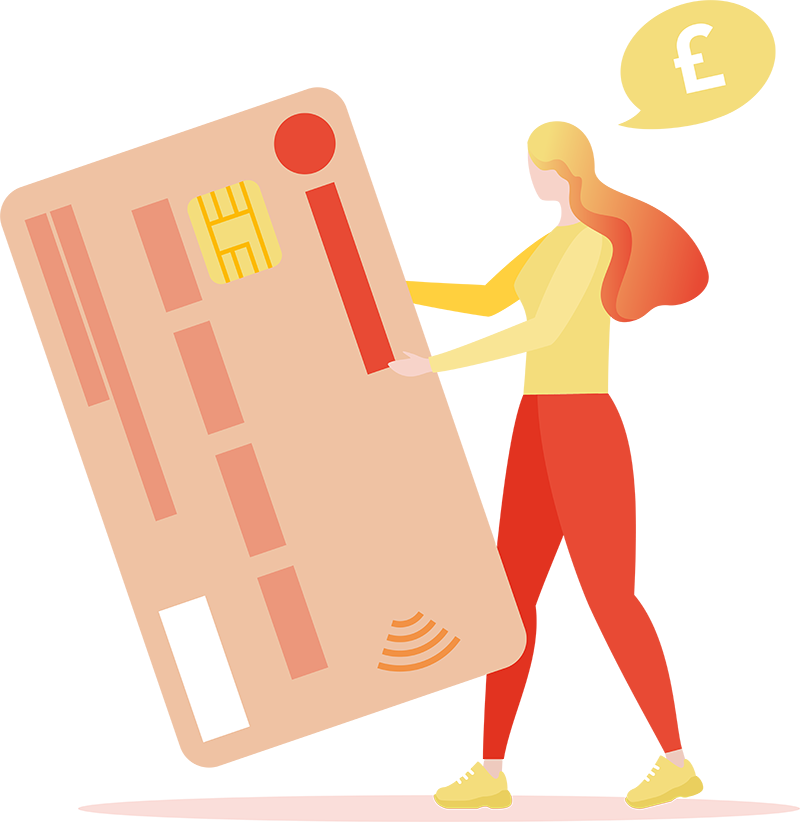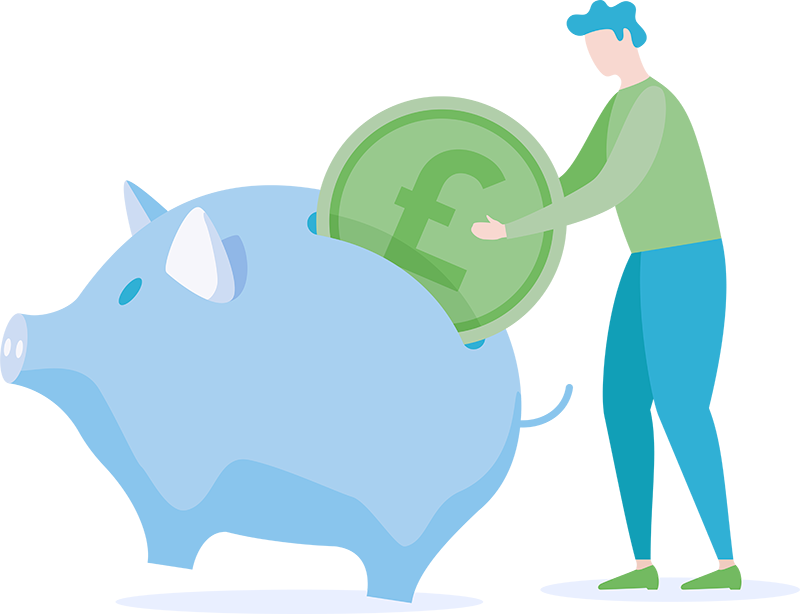How we can help
WB Debtcare offers a range of debt solutions to individuals in financial distress. We provide a non-commitment consultation to help you get started.
payment plans
Debt Arrangement Scheme
The Debt Arrangement Scheme Scotland (DAS Scotland) was introduced by the Scottish Government in November 2004 to offer individuals in financial distress the ability to pay back their debts under a Debt Payment Programme (a DPP) with the backing of the Debt Arrangement Scheme Scotland legislation. A DPP under the Debt Arrangement Scheme Scotland is one of a suite of options available through Scottish Debt Expert WB Debtcare to someone in financial distress. Our advisors can provide you with details of all the options available to enable you to make an informed choice of how to proceed. A consultation can be arranged at a time to suit you, in person at a convenient location, or by telephone.
To arrange a consultation, simply telephone 0141 566 7038.

A DAS stops creditors taking action against you and freezes their interest and charges while you repay what you owe over an agreed period. It is the only debt management scheme for repaying your debts which is legally binding on your creditors, and stops interest and charges accruing. Under the scheme, your budget is assessed, and one single monthly (or weekly) payment is agreed with you. This is paid into the Debt Payment Plan (DPP), and distributed to your creditors. A main feature of a DAS is it does not to take account of any assets you have (such as your home or car).
The first thing to do is to contact an Approved Money Advisor. One of WB Debtcare’s team can act as your Approved Money Advisor (we will not simply send you on to someone else). We will discuss your circumstances with you to ensure that a DAS is the most suitable option. The next step is to go over a realistic budget for you, and from this you will agree the amount of the single monthly (or weekly) payment that is to be paid to your DPP for your creditors. We will then submit the details of your DAS to your creditors. Your creditors will have a period of 21 days to advise your Approved Money Advisor if they object. If no creditors object to the proposed plan, then its details are submitted to the DAS Administrator (The Accountant in Bankruptcy is an office of the Scottish Government), and the DPP will automatically be given approved status. If any of your creditors do object, then the DAS Administrator would consider whether your DPP is fair and reasonable, and if so, approve your DPP (regardless of any of your creditors objections).
If any of your circumstances change and this affects your ability to carry on with your DPP under its original terms, then we can put forward an appropriate amendment to the DPP to your creditors. Creditors have the opportunity to object to this, and as with the approval of the DPP initially, the DAS Administrator will consider whether or not your amended DPP is fair and reasonable, and if so, approve your DPP amendments.
If you miss payments during your DPP or if a creditor makes a successful application, then your DPP may be revoked.
Fees will be applied for the administration of your debt payment programme. You will not be responsible for paying these. They will be deducted from the payments you make before your creditors are paid. The DAS Administrator fee is 2% and fees for the others involved in the programme is 20% of the sum due to be paid to your creditors. Therefore, if you complete the debt payment programme you will have paid your debt in full with your creditors receiving 78% of what they were owed.
You must have sufficient disposable income to pay off your debts in full and must do this over a fair and reasonable time. If this cannot be achieved, then it may be appropriate to consider one of the other debt solutions offered by WB Debtcare. Your Approved Money Advisor will go over this with you.
If you continue to pay your rent, mortgage or secured loans your house will not be at risk. Your Approved Money Advisor will have to know the financial details of your property. Once your DPP is approved and remains in force, creditors will not be able to take any action against your home. Your Approved Money Advisor will be able to advise you on this in full.
Watch the video below and find out why a Debt Arrangement Scheme might be one of our three solutions that’s right for you.
affordable creditor agreement
Trust Deeds
A Trust Deed is an arrangement with your creditors based on what you can afford to pay over the course of 4 years. At the end of this period, any remaining debt is written off.

A Trust Deed is an arrangement with your creditors based on what you can afford to pay over the course of a minimum of four years. At the end of this period any remaining debt is written off.
Unless objections are received within a five week time limit from more than half of the number of your creditors, or more than one third in combined value, then the Trust Deed will become protected and backed by government legislation (the Bankruptcy (Scotland) Act 2016).
From signing the Trust Deed to having it registered as protected takes about seven weeks. A notice of the deed is placed in the Register of Insolvencies, creditors are contacted and given five weeks to object to it. Thereafter, the Accountant in Bankruptcy (AIB) registers the Trust Deed as protected.
Please contact us and we will explain the effect on your credit rating more fully.
We recognise the worry you may have about your home, and this will underpin the basis of whether a Trust Deed is the correct option for you.
The Trustee only has an interest in any equity in your home, and provided the circumstances are appropriate, this equity can be properly managed (for example by an extension to the Trust Deed duration, or by the exclusion of the home from the Trust Deed). Our experts can talk you through the options available.
This largely depends on whether your car is owned or on Hire Purchase, its value, and how alternative travel arrangements would impact on your family budget. The key to a successful Trust Deed proposal is to strike the correct balance between your interest in retaining your car and the financial return to creditors our proposals are structured with that in mind.
Your trustee will expect to be paid a fixed administration fee and an additional fee based on a percentage of funds collected during the trust deed, for the work done in administering your trust deed. Once the trustee’s fixed fee has been set it may only be increased with the consent of creditors or by the Accountant in Bankruptcy. Your trustee will be paid before any money is available to repay your creditors.
a fresh start
Sequestration
Sequestration is the Scottish term for Bankruptcy. Sequestration is a viable debt relief solution for individuals in financial distress, and access to Sequestration is now available to anyone unable to pay their debts as they fall due.
Sequestration is one of a suite of options available through WB Debtcare to someone in financial distress. Our advisors can provide you with details of all the options available to enable you to make an informed choice of how to proceed. A consultation can be arranged at a time to suit you, in person at a convenient location, or by telephone.
To arrange a consultation, simply telephone 0141 566 7038.

Sequestration is the Scottish term for Bankruptcy. The process of Sequestration in Scotland was modernised in 2016. These changes have made it a viable debt relief solution for individuals in financial distress, and access to Sequestration is now available to anyone unable to pay their debts as they fall due.
Once you have successfully applied for your Sequestration, a Trustee is appointed to deal with your estate. Your estate means all the money that you owe, and any assets that you have. Following your Sequestration, the companies and banks that are owed money (your creditors) must deal with your Trustee. They are no longer allowed to pursue you or act against you in respect of the money owed. Your Trustee’s responsibility is to realise assets and assess if you can afford to make a contribution from your income for a period of four years. Your Trustee will divide up the monies gathered equally amongst your creditors, and they must write off the balance that they do not receive.
There is no legal requirement as part of the sequestration for your creditors to receive any payment. Sometimes they receive nothing. If your estate does not have sufficient funds to enable any payment to be made to your creditors, then they will legally have to write off all you owe to them.
It is important to note that your Trustee does not have to deal with your rented property, or your home if there is no equity (you owe more on the mortgage than the house is worth). Where there is equity in your property, it is only that equity that the Trustee has an interest in.
Where there is an asset that the Trustee must deal with, the asset does not necessarily have to be sold (though can be). For example a third party you propose (e.g. a family member, friend, or relative) may buy out the Trustee’s interest in the asset, or you may buy this out after your 1 year discharge. A buy-out may be by instalments over an agreed repayment period. This is most commonly how any interest in the equity in your home, or your car would be dealt with. Most other assets are generally sold.
It is important that you understand how any assets you have will be dealt with before you commit to entering the Sequestration process. A WB Debtcare advisor can guide you in this regard.
You apply for Sequestration by completing an application form and submitting this to the office of the Accountant in Bankruptcy. If you choose to have a Trustee from WB Debtcare deal with your Sequestration, we will assist with your application.
The qualifying criteria is that you must owe at least £1,500 in total, and one of the following must apply:
- A qualified individual certifies that you are unable to pay your debts as they fall due (WB Debtcare Insolvency Practitioners are qualified to do this).
- WB Debtcare can take care of the process of certifying that you are unable to pay your debts as they fall due and submit your application.
You have the option of nominating either the Accountant In Bankruptcy to act as your Trustee, or a private Licensed Insolvency Practitioner (such as the WB Debtcare Insolvency Practitioners). Unlike nominating the Accountant in Bankruptcy, if you nominate WB Debtcare then you will be able to discuss your problems before making a final decision, and do this with the person who will be dealing with your case. This enables you to understand beforehand how much of a payment for four years will be expected from your income and agree how any assets you have will be dealt with.
At WB Debtcare we have been delivering debt solutions for over 30 years and undertake Sequestrations on behalf of the Scottish Government. Accordingly, we are best placed to ensure that your Sequestration is conducted in accordance with the modern standard.
WB Debtcare Insolvency Practitioners can act for you where you owe at least £6,000, and are in employment with scope for some surplus income (or have assets in your estate).
You will be assessed according to your own unique circumstances and by using the Common Financial Tool.
Sequestration is aimed at providing debt relief and accordingly, you will be returned to a better financial standing than the position you were in when paying back what you owe.
If you are unable to make any payments from your income and have no assets, then we will direct you to the Accountant in Bankruptcy to deal with your Sequestration.
The payments you make from your income will be for no more than four years.
You may be discharged from your Sequestration after one year, though your Trustee will still be there to deal with your income payments for the four-year period. During that one year prior to your discharge, there are certain restrictions on you. These are some of the main ones:
- You are limited to what further credit you can take on.
- You may not act as a Director of a limited company.
- You may not take on certain public offices.
- If you acquire any assets (e.g. an inheritance or lottery win) then these must go to your Trustee).
The costs of administering your bankruptcy will be met from funds accumulated from the sale of your assets and from contributions that you made from your income. These include the fees and costs of the trustee and will be paid before any payments are made to your creditors. The fees are charged on a time on-line basis and will be audited by the Accountant in Bankruptcy and approved by creditors.


